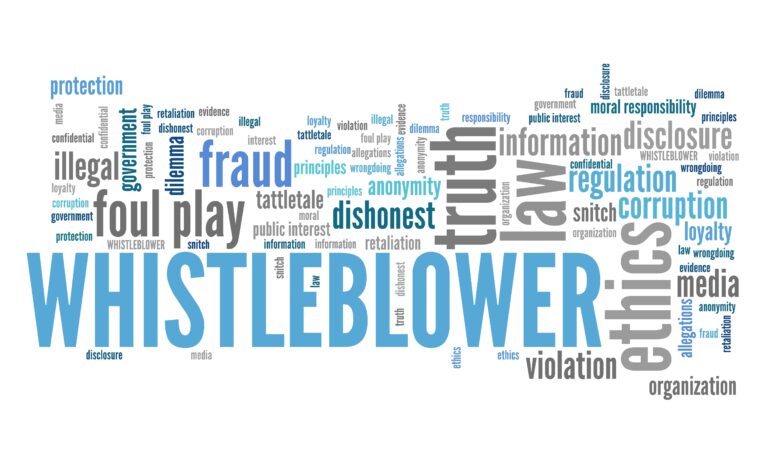If an employee had a food safety concern in one of your facilities, would they speak up? If so, would they speak to a supervisor; talk about it with peers; post it on social media; or “blow the whistle” externally? And … if they did, what would you do?
The launching of a new Whistleblower Food Safety Incident Report Site by the Global Harmonization Initiative (GHI) has brought such questions to the forefront, making it important for food businesses to take a new look at any policies that are in place – or develop a policy if you have none. In addition to consideration of the new whistleblower site, businesses need to consider the 2016 FSMA Whistleblower Act (or more precisely: Procedures for Handling Retaliation Complaints Under Section 402 of FSMA). And, as we stated back in 2016, “If you didn’t realize this was part of FSMA, or are wondering how FDA will enforce it, you’re not alone.”
So what do you need to know about the FSMA rule? What does the new Whistleblower site provide? And why do you care?
Let’s start with the FSMA Rule. The purpose of the rule is to protect food-establishment employees against retaliation by their employer for providing information to the employer or federal or state government about a food safety act or omission they reasonably believe to be in violation of the FD&C; for testifying, assisting or participating in a proceeding concerning such violation; or for objecting to, or refusing to participate in, anything reasonably believed to be in violation of the FD&C. The provisions were written to be consistent with OSHA whistleblower regulations.
While we were correct in stating then that we did not think the rule would spawn a bevy of whistleblowing, we did, and do still, see it as a solid out for those who may be facing a PCA-like situation. That is, when one looks at the consequences from the PCA trial for those who allegedly played along with poor decisions, the rule could help some employees pause and consider blowing the whistle with less fear of retribution.
Add to that the fact that the launching of the Whistleblower website makes such reporting even simpler – and anonymous. As stated by GHI, “Across the world, most food industry employees dare not report information about safety concerns externally because of the consequences of their employer finding out who they are.” Those who may follow their conscience and report concerns risk job loss or even worse consequences. With that still being the fate of many whistleblowers, GHI developed the site stressing that “the emphasis is on anonymous and we have taken web-based privacy safeguards to ensure this.”
All serious incident reports that GHI receives will be evaluated by a team of food safety experts, and those that could cause serious harm to consumers will be further reported to the local authorities of the country of interest, asking them to investigate.
Thus, it is to be remembered that it is a global site as GHI is an international organization. So the site may have greatest value in countries where no employee-protection regulations exist, such as those of FSMA and OSHA.
But the U.S. does have FSMA and OSHA and now a simpler, anonymous way for employees to report what they see as wrongdoing. While maintaining strong food safety practices in your establishment should be able to go unsaid, this continuing focus on whistleblower protections should highlight the importance of maintaining communication with your employees as well as your customers and consumers and maintaining (or developing) a strong food safety culture. The more comfortable your employees feel about bringing up issues they see, speaking with their supervisors or other management representatives – and getting results, the less likely they are to feel the need to go to external sources. And the better your food safety will be as a whole.





